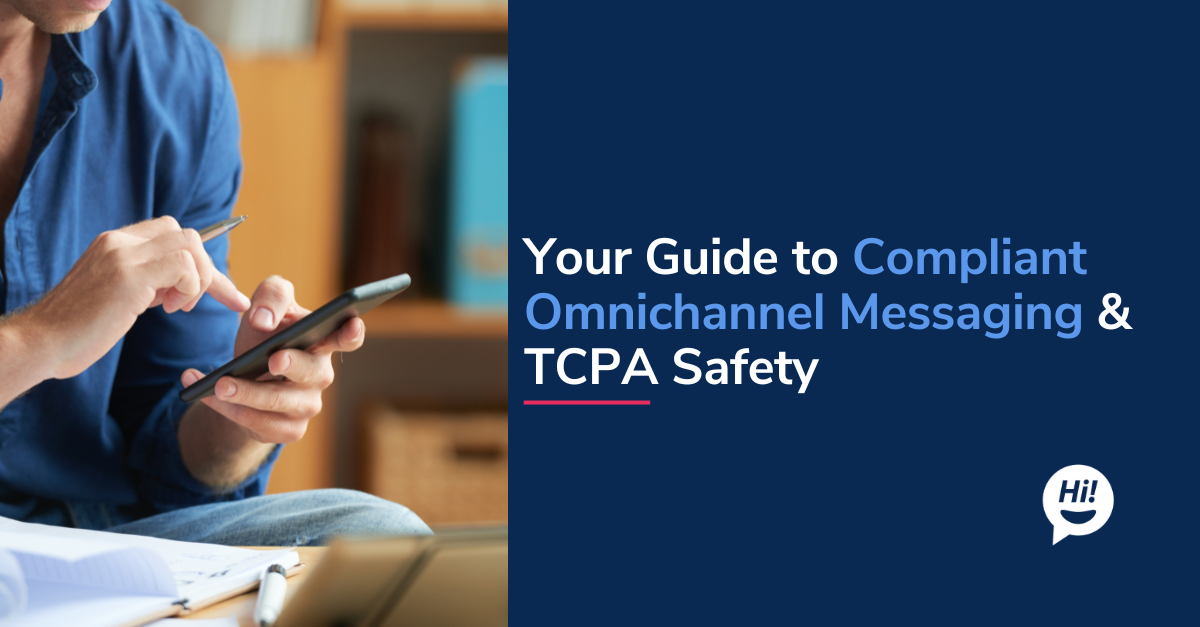Omnichannel platforms are the future of education. They offer a seamless and integrated learning experience for students, regardless of where or what device they're using. With omnichannel platforms, students can access course materials, complete assignments, and participate in discussions from anywhere, at any time.
But what exactly are omnichannel platforms, and how can they benefit your educational institution?
In this blog post, we'll explore the ins and outs of omnichannel platforms and discuss how they can help you improve student engagement, increase student success, and enhance operational efficiency.
What Are Omnichannel Platforms in Education?
Omnichannel platforms are software solutions that allow educational institutions to provide a seamless and integrated learning experience to their students across multiple channels, including online, offline, and mobile. These platforms typically include various features, such as learning management systems (LMSs), student portals, assessment tools, and communication tools.
Benefits of Omnichannel Platforms in the Educational Sector
Omnichannel platforms are particularly relevant and insightful for educators and managers in educational establishments because they can help address some of the critical challenges facing the education sector today.
It offers several benefits to educational institutions, including:
Improved student engagement: Omnichannel platforms allow students to learn in the way that best suits their individual needs and preferences. Students can access course materials, complete assignments, and participate in discussions from anywhere, at any time.
Increased student success: Omnichannel platforms can help students improve their academic performance by providing access to personalized learning resources and support, regardless of their learning style or location.
Enhanced operational efficiency: Omnichannel platforms can help educational institutions streamline their operations and reduce costs by automating tasks such as enrollment, course registration, and grading. Furthermore, academic institutions can be more efficient by providing a single platform for all aspects of learning and administration.
Improve communication and collaboration: Omnichannel platforms can improve communication and collaboration between students, teachers, and administrators.
Increase Student Success With Omnichannel Platforms
The purpose of academic institutions is to facilitate an environment of growth and student success. And the process of creating such an environment changes with time. In such cases, omnichannel platforms can help increase student success in many ways, including:
Providing students with access to personalized learning resources and support
Omnichannel platforms can track student progress and identify areas where students need additional support. This information can provide students with personalized learning resources and support.
Making it easier for students to stay on track
Omnichannel platforms can remind students about upcoming deadlines, due dates, and other important events. Such features can help students to stay on track and avoid falling behind.
Providing students with opportunities for feedback and assessment
Omnichannel platforms provide students with opportunities to receive feedback on their work and to assess their progress. This can help students to identify areas where they need to improve and track their progress over time.
Helping students to develop the skills they need to succeed in the workforce
Omnichannel platforms can incorporate various features and resources that can help students develop the skills they need to succeed in the workforce, such as communication skills, teamwork skills, and problem-solving skills.
Enhance Operational Efficiency With Omnichannel Platforms in Education
Omnichannel platforms can assist in enhancing operational efficiency in some ways, including:
Automating tasks: Omnichannel platforms can automate many of the tasks that educators and administrators currently perform manually, such as enrollment, course registration, and grading. This can free up staff time to focus on more strategic initiatives.
Streamlining workflows: Omnichannel platforms can streamline workflows by providing a single platform for all aspects of learning and administration. This can reduce duplication of effort and improve communication and collaboration.
Providing data and insights: Omnichannel platforms can offer educators and administrators data and insights on student progress, course performance, and other key metrics. This information can help educators make informed decisions about curriculum, instruction, and other aspects of the educational process.
Overall, omnichannel platforms offer several ways to improve student engagement, increase student success, and enhance operational efficiency in educational institutions.
Future Omnichannel Trends in Education
In the future, omnichannel platforms will become even more widely adopted in educational institutions. As technology continues to evolve, we can expect to see omnichannel platforms that are even more personalized, engaging, and efficient.
Here are some specific trends that we can expect to see in the future of omnichannel platforms in education:
Increased use of artificial intelligence (AI) and machine learning (ML)
AI and ML can be used to personalize the learning experience for each student, provide real-time feedback, and automate tasks.
The rise of blended learning
Blended learning combines online and offline learning to create a more personalized and engaging learning experience. Omnichannel platforms can be used to support blended learning by providing a single platform for all aspects of learning, both online and offline.
The growing demand for personalized learning
Students want to learn in a way that fits individual needs and preferences. Omnichannel platforms can help with personalizing the learning experience for each student by providing access to personalized learning resources, real-time feedback, and opportunities for collaboration with peers and instructors.
Conclusion
Omnichannel platforms are rapidly transforming the way that education is delivered. By providing a seamless and integrated learning experience across multiple channels, omnichannel platforms can help to improve student engagement, increase student success, and enhance operational efficiency.
To sum up, the future of omnichannel platforms in education is bright. As technology continues to evolve, we can expect to see omnichannel platforms that are even more personalized, engaging, and efficient. This will lead to improved student outcomes, reduced costs, and increased efficiency for educational institutions.
If you’re wondering how such platforms can apply to your local academic community then feel free to reach out. Schedule a call today!
To learn more about Botsplash click the button below to schedule a demo with our team.







